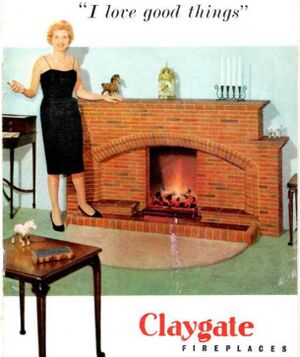Template:Courier-MAR-24-14c: Difference between revisions
Created page with "===VILLAGE CLAY MADE BRICKS FOR FIREPLACES AROUND THE WORLD=== right|300px Claygate sits on a bed of clay up to 15 metres thick and bricks made from it have been widely used locally, in particular for the construction of Claygate Station and the bridge over the railway at the end of Claremont Road. While it is not certain that Claygate bricks were used in the original construction of Hampton Court Palace, Claygate bricks have been used for repair..." |
|||
| Line 20: | Line 20: | ||
'''Picture printed with permission of Terry Gale, who chairs the Esher District Local History Society''' | '''Picture printed with permission of Terry Gale, who chairs the Esher District Local History Society''' | ||
{{source|Claygate Courier, March 2024 issue, page 14}} | |||
Latest revision as of 21:40, 23 May 2024
VILLAGE CLAY MADE BRICKS FOR FIREPLACES AROUND THE WORLD

Claygate sits on a bed of clay up to 15 metres thick and bricks made from it have been widely used locally, in particular for the construction of Claygate Station and the bridge over the railway at the end of Claremont Road.
While it is not certain that Claygate bricks were used in the original construction of Hampton Court Palace, Claygate bricks have been used for repairs at the palace in more recent times.
From 1922, the entire output of the Common Road Brickfield, the village’s oldest, bounded by Common Road and Stevens Lane, was given over to the manufacture of fireplaces. Claygate fireplaces were exported all over the world and if you have a brick fireplace in a house built between 1922 and the 1960s you can be almost certain it will have come from Claygate Fireplaces Ltd.
Picture printed with permission of Terry Gale, who chairs the Esher District Local History Society
